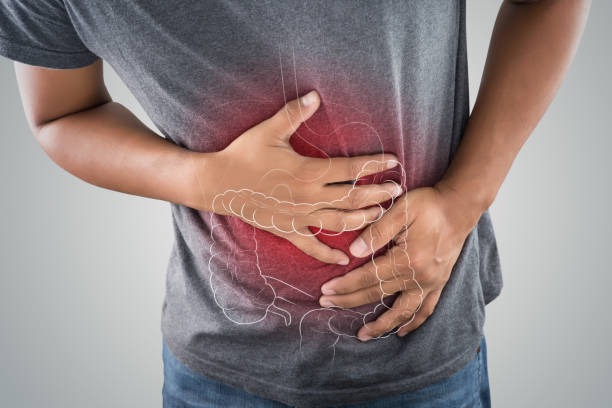Characteristics, Types, Causes of Stomach Ulcer and Gastritis and Why You Should Treat Them Properly
[ad_1]

According to Healthline – Nausea and upper abdominal pain are two common characteristics of ulcer disease. Most people think that these characteristics of ulcers can be overcome with ulcer drugs sold in pharmacies.
In fact, it could be that the symptoms are more severe than imagined and require consultation with a doctor. If you experience ulcer symptoms, especially for the first time, consult a doctor immediately so that you can get a complete diagnosis of your ulcer condition.
If you only rely on ulcer medication without a doctor’s diagnosis, there is a risk that you will not treat your ulcer properly and eventually cause more severe disease.
What are the characteristics of gastritis?
Usually, gastritis caused by bacterial infection does not cause any obvious symptoms. However, common symptoms of gastritis may include vomiting, nausea, pain in the upper abdomen, bloating, lack of appetite and hiccups.
In severe cases of gastritis, symptoms may include:

Vomiting blood or excessive vomit that is yellow or green in colour.
Pain in the chest.
Foul smelling faeces.
Shortness of breath.
Severe abdominal pain accompanied by fever.
Excessive sweating.
Dizziness and fainting.
Stools that are black in colour or contain blood.
Rapid heartbeat.
What are the characteristics of acute ulcers?
Some people with acute ulcers will not feel any symptoms. Others can experience mild to severe symptoms. The following are symptoms of acute ulcers that must be considered:
Loss of appetite;
Black stools (faeces);
Nausea;
Vomiting;
Appearance of blood in the vomit;
Pain in the upper abdomen.
A feeling of fullness at the top of the stomach after eating.
Some of the symptoms of acute gastritis above are often mistaken for symptoms of other diseases. It is not surprising that many people do not realise that they have an acute ulcer, which is why you are always advised to consult a doctor. They will help you scrutinise the symptoms to diagnose the disease.
Types of gastritis:
There are two types of gastritis, erosive gastritis and non-erosive gastritis. Erosive gastritis is more severe as it causes the stomach wall to gradually erode until it can cause sores.
While non-erosive gastritis only causes inflammation without causing sores and erosion, this type of gastritis also causes changes in the stomach wall.
Causes of gastritis:

Gastritis can be triggered by a variety of things, but the most common is due to infection of the H.pylori bacteria in the stomach wall. Besides infection from H.pylori bacteria, another cause of gastritis is due to the immune system attacking cells in the stomach.
This condition is known as autoimmune gastritis which causes erosion of the protective stomach wall. However, this condition is more susceptible to people with Hashimoto’s disease and type 1 diabetes.
Other diseases or medical conditions that can cause gastritis are HIV/AIDS, parasitic infections in the stomach, Crohn’s disease, cysts in the stomach, bile reflux, and so on.
Excessive consumption of alcohol, marijuana, and painkillers can also remove the protective barrier on the stomach wall, causing inflammation and triggering gastritis. Certain injuries to the stomach, such as surgical wounds, etc. can cause gastritis.
Can gastritis be cured?
In many cases of mild gastritis, symptoms may go away on their own. However, if not treated properly, it can last for years. Also, stomach pain does not necessarily mean stomach ulcers. There could be other digestive problems that are mistaken for stomach ulcers. For this reason, sufferers need to be examined to get the right diagnosis. The doctor will perform a series of tests to determine whether there is inflammation or infection with H pylori bacteria.
Only then can treatment be carried out. The earlier the treatment is given, the less likely the ulcer will become acute and become a complication of other diseases. Equally important is to make peace with stress. No one can predict when there is a stress-inducing event. Also, improve your lifestyle by avoiding low pH foods avoiding alcohol, and eating frequent, small meals.
What happens if Gastritis is not treated promptly?
Untreated gastritis can lead to bleeding, tumours and sores in the stomach. Although rare, some types of gastritis increase the risk of developing stomach cancer.
Generally, gastritis that leads to stomach cancer is caused by the continuous erosion of the stomach wall that changes the cells in the stomach wall.
Besides increasing the risk of stomach cancer, prolonged gastritis can cause anaemia due to bleeding in the stomach wall and vitamin B12 deficiency. Vitamin B12 deficiency is caused by impaired absorption of vitamin B12.
Link between gastritis and stomach cancer:

Gastritis caused by H. pylori infection can increase a person’s risk of developing stomach cancer. Initially mild symptoms of gastritis slowly become more severe when the H. pylori infection causes chronic atrophic gastritis or intestinal metaplasia.
Chronic atrophic gastritis occurs when the glands in the stomach are absent or damaged. However, this condition is not always caused by H. pylori infection, but can also be caused by autoimmune diseases in the stomach.
Meanwhile, intestinal metaplasia, a condition where the stomach wall is replaced with cells that are similar to those in the intestines, can occur. Sometimes intestinal metaplasia can develop into chronic atrophic gastritis where the cells in the stomach cannot function properly.
However, researchers do not know exactly how intestinal metaplasia or chronic atrophic gastritis can lead to stomach cancer.
However, H. pylori infection was found to convert some ingredients in food into chemical compounds that can alter the DNA of cells in the stomach wall. This may put H. pylori infection in the stomach at risk of developing stomach cancer.
Consult a doctor:
Do not underestimate the characteristics of the ulcer experienced because if not treated properly it can cause various serious complications. Visit a doctor immediately if you or your relatives experience the characteristics of ulcers above.
Content created and supplied by: Trendyhealth (via Opera
News )
Opera News is a free to use platform and the views and opinions expressed herein are solely those of the author and do not represent, reflect or express the views of Opera News. Any/all written content and images displayed are provided by the blogger/author, appear herein as submitted by the blogger/author and are unedited by Opera News. Opera News does not consent to nor does it condone the posting of any content that violates the rights (including the copyrights) of any third party, nor content that may malign, inter alia, any religion, ethnic group, organization, gender, company, or individual. Opera News furthermore does not condone the use of our platform for the purposes encouraging/endorsing hate speech, violation of human rights and/or utterances of a defamatory nature. If the content contained herein violates any of your rights, including those of copyright, and/or violates any the above mentioned factors, you are requested to immediately notify us using via the following email address operanews-external(at)opera.com and/or report the article using the available reporting functionality built into our Platform
See More
[ad_2]

